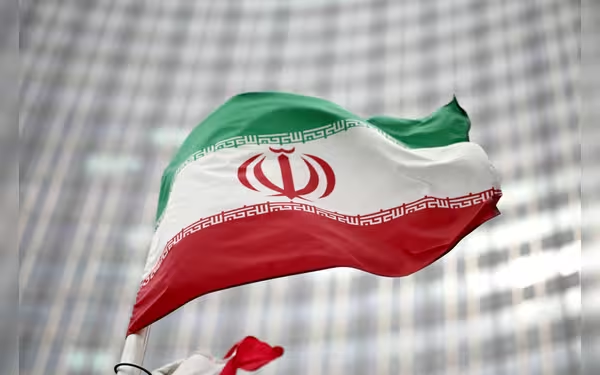Sunday, December 22, 2024 09:17 AM
Iran Nuclear Talks with European Powers in Geneva
- Iran to discuss nuclear program with Europe on November 29.
- Tehran emphasizes diplomacy despite rising tensions.
- Upcoming talks may reshape geopolitical landscape.
 Image Credits: arabnewspk
Image Credits: arabnewspkIran is set to hold nuclear talks with European powers in Geneva, emphasizing diplomacy amid rising tensions.
Iran is set to engage in crucial discussions regarding its controversial nuclear program with three European powers on November 29 in Geneva. This announcement comes shortly after the United Nations atomic watchdog passed a resolution against Tehran, highlighting the ongoing tensions surrounding Iran's nuclear activities.
The resolution, which was put forth by Britain, France, Germany, and the United States, has prompted Iran to respond with what officials describe as various measures. These include the activation of numerous new and advanced centrifuges, which are machines used to enrich uranium. This move indicates Iran's determination to continue its nuclear advancements despite international pressure.
According to reports, Iranian President Masoud Pezeshkian's government is actively seeking a resolution to the nuclear deadlock, especially with the upcoming inauguration of U.S. President-elect Donald Trump in January. A senior Iranian official has confirmed that the meeting in Geneva will proceed as planned, emphasizing that "Tehran has always believed that the nuclear issue should be resolved through diplomacy. Iran has never left the talks." This statement underscores Iran's commitment to dialogue, even amidst escalating tensions.
The backdrop to these discussions is significant. In 2018, the Trump administration withdrew from the 2015 nuclear pact, which had been established between Iran and six major powers. This withdrawal led to the reimposition of severe sanctions on Iran, prompting the country to breach the nuclear limits set by the agreement. Iran's actions included rebuilding stockpiles of enriched uranium, refining it to higher fissile purity, and installing advanced centrifuges to accelerate output.
Efforts to revive the nuclear pact through indirect talks between President Joe Biden's administration and Tehran have not yielded positive results. However, Trump, during his election campaign in September, stated, "We have to make a deal, because the consequences are impossible. We have to make a deal." This sentiment reflects the urgency felt by many regarding the potential fallout from the ongoing nuclear dispute.
As the world watches these developments closely, the upcoming talks in Geneva could be pivotal. The outcome may not only affect Iran's nuclear ambitions but also the broader geopolitical landscape. It is essential for all parties involved to approach these discussions with a genuine commitment to diplomacy, as the stakes are incredibly high. The future of international relations in this region may very well hinge on the decisions made in the coming weeks.













